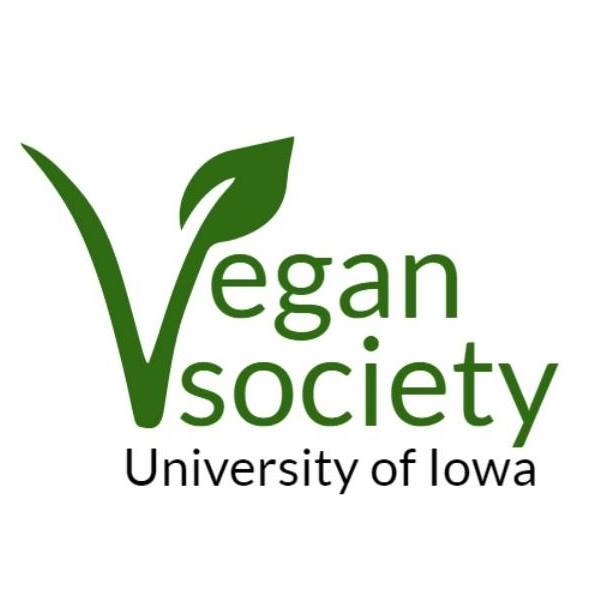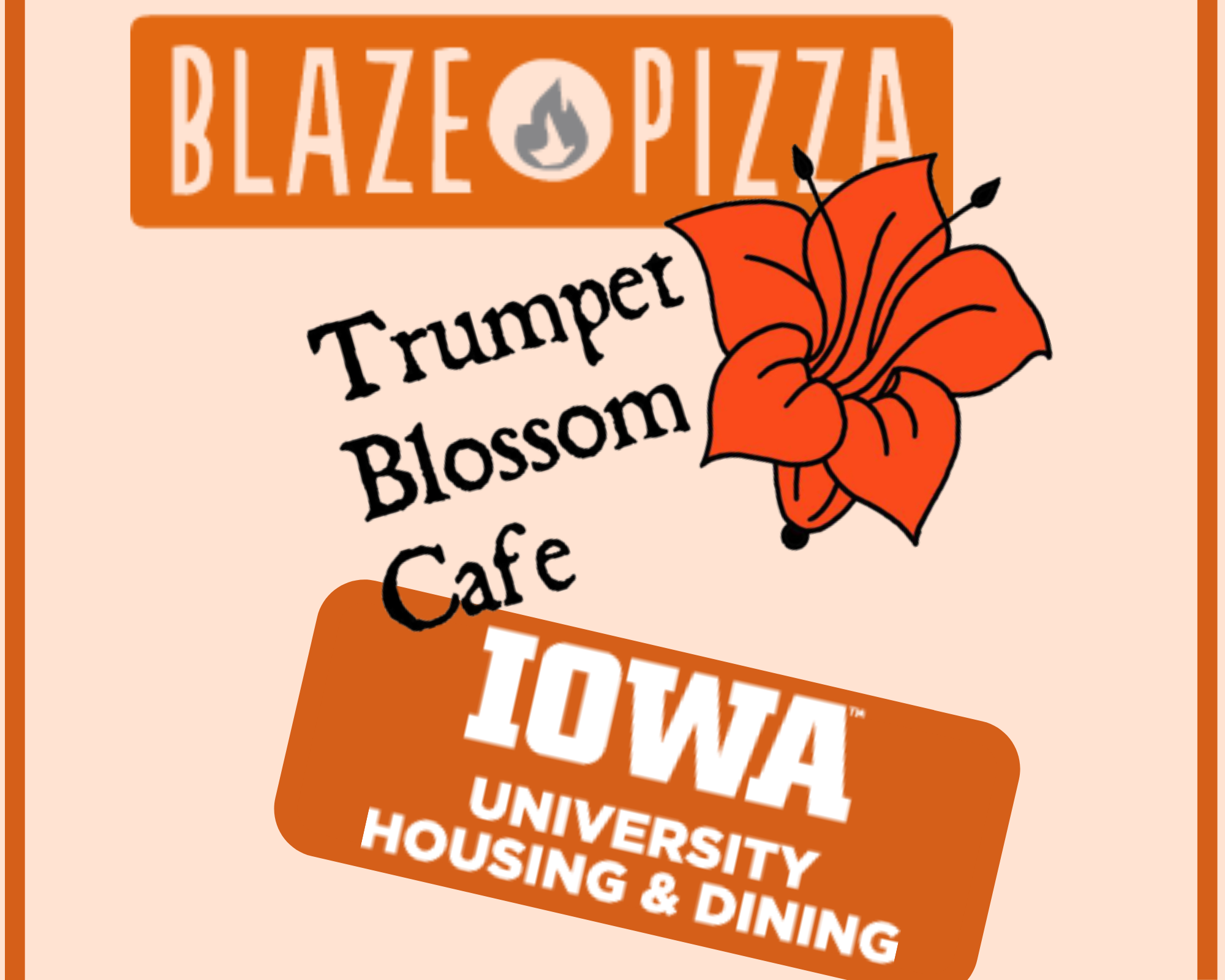People often think
More and more individuals are deciding to move to meat-free diets for ethical and health reasons. Yet, many people seem to misunderstand vegetarianism. Take a look at any social media post discussing plant-based diets and there will surely be lively discussions.
Misconceptions about this lifestyle stem from simple ignorance. However, meat-free lifestyles are easy to understand and implement in your own life. Iowa City and the University of Iowa are filled with opportunities and people involved in the vegetarian lifestyle.
University of Iowa student Emma Dunlay is a second-year student studying dance and has been a vegetarian for two years. Dunlay decided to give up meat for Lent and stuck with it because of her concerns for the environment.
“My mom was not happy,” Dunlay said. “She rolled her eyes and said ‘Now I have to learn to make new things.’”
While her mom may have struggled to expand her cookbook, Dunlay said after a week or so of going cold turkey, it wasn’t too bad.
“Many people think it is harder than it truly is,” Dunlay said.
She does have to consider what nutrients she is taking in and what products less obviously contain meat products. For example, she has to watch out for french fries since many restaurants fry their food in animal fat. She also takes occasional teasing from her friends, though a perk is that being vegetarian is easier on Dunaly’s wallet. She finds her buying vegetarian is cheaper than when she was purchasing meat.
Even though she gave up meat for Lent, her reasons for continuing vegetarianism run deeper than that. Climate change is one of her main priorities for adjusting her lifestyle.
“You can’t complain about it if you aren’t doing anything about it,” Dunlay said.
Living a vegetarian lifestyle is her effort to protect the climate from the impact the livestock industry has on the earth’s sustainability. She thinks about that impact when working at the university’s dining hall. She recalls placing bacon on a tray and thinking about the impact the production and transportation it has on the planet.
For instance, the Food and Agriculture Organization of the United Nations reports the livestock sector uses large amounts of natural resources, such as land and water. Additionally, this sector emits 14.5% of human induced greenhouse gases. These gases stay in the atmosphere and warm the planet causing climate change, according to NASA. Climates around the world don’t just become hotter or drier but can become colder or wetter. These changes contribute to sea levels rising and even changing where crops grow successfully.

Dunlay finds that Iowa City offers many opportunities to reduce your impact on the environment, from walking to recycling and the accessibility of a vegetarian lifestyle. Compared to her hometown of Waterloo, there is more room to explore this lifestyle, as she said Iowa City is “10/10.” There is an exclusively vegan restaurant in Iowa City called Trumpet Blossom Cafe, but chain restaurants, such as Blaze pizza offer vegetarian and vegan options as well.
Dunlay is excited to see that interest in vegetarianism is growing and more awareness is brought to this topic.
Awareness to meat-free lifestyles has been improving through the University of Iowa Vegan Society. This student organization has around 250 members, including vegans, vegetarians, and omnivores curious about veganism, UI Vegan Society Vice President Maya Dasmalchi said.
“I went vegan basically overnight and had no problems,” Dasmalchi said. “Of course I still made mistakes because there are animal products in things you don’t expect.”
With a meat-free lifestyle, one has to keep a watchful eye on the ingredients and what makes up the ingredients in food. For instance, a camping favorite, marshmallows are not vegetarian because the gelatin in marshmallows is derived from animal collagen. Another example is that certain types of cheeses have enzymes that are found in cow stomachs.
However Dasmalchi has had time to sift through the ingredients over the many years she has been meat-free. Dasmalchi has been a vegetarian since childhood and within the last five years, she transitioned to a vegan lifestyle. As she made the move from vegetarianism to veganism, she did have support in her corner. Her sister became a vegan shortly before her, so they were able to help each other adapt.
The UI Vegan Society offers a similar type of support system. They hope to provide friendly faces, outreach and awareness of veganism for Iowa City and the University of Iowa community.
This organization also breaks down stereotypes about vegans. Dasmalchi said sometimes the image of aggressive, often the stereotype in-your-face vegans is perpetuated on social media. However, she said this is not something vegans want to be associated with. She explains that the organization is quite understanding of people.
“None of us on the team were born vegans,” Dalsmachi said. “So it would be ridiculous of us to judge people who are not vegan.”

Friendliness also applies to vegan’s views of farmers. People often assume that vegans hate farmers. That is not the case. For instance, Dalsmachi is related to cattle farmers herself, and she appreciates the work they do to provide produce that she eats.
While there is not hatred towards farmers themselves, Dalsmachi explained that for her, it is more the decision they make to be in an industry she finds unsustainable and unhealthy for the future of the planet.
“It is all connected. What is good for the animals is generally good for humans and the planet as well,” Dalsmachi said.
As for the student organization, they plan events that teach their members and community members. They attend vegan festivals around Iowa, present concepts to elementary students, host vegan bake sales, volunteer at sanctuary farms—farms where animals saved from livestock farms go to live out their natural lives—and more.
She encourages students to work towards decreasing their animal product consumption. It is easier than ever with new vegan products readily available near campus. If you want a vegan pizza at night, there are places nearby campus that have vegan pizza, Dalsmachi said. Along with that, the university is making strides to be more inclusive for this lifestyle.
As a first-year student, she struggled to find food that accommodated veganism at the dining halls, so much so that she became a skilled microwave cook. It was a discouraging process for her. She reached out to the university, but was unable to find a resolution that offered consistent vegan options for students.
However, in the time since her first-year, the university made steps in the right direction. Dalsmachi noticed there is now more vegan options consistently offered in dining halls along with vegan flex meals. However, she still would enjoy to see more progress to better include this lifestyle.
Something both Dunlay and Dalsmachi, among many meat-free individuals, share is the idea that vegetarianism and veganism are much more than diets.
“Veganism is not a diet,” Dalsmachi said. “Diet is one aspect of it; it is actually a lifestyle that seeks to exclude animals, animal products, and anything that requires animal suffering from our lives as much as possible. It is not about an individual perfection, but we should all be striving towards it.”

